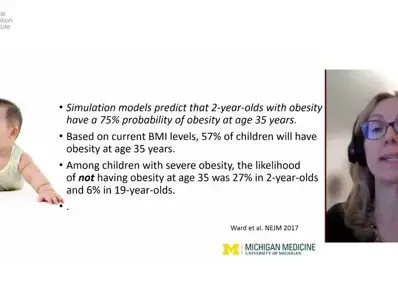According to the World Health Organization (WHO), there are approximately 650 billion adults worldwide affected by overweight and obesity, which is often the consequence of a combination of a high-caloric and high fat diet, little to no physical activity, and a genetic predisposition. Obesity not only increases a person’s risk of developing type 2 diabetes but also concomitant conditions like hypertension, dyslipidemia, and nonalcoholic fatty liver disease. To reduce the risk of developing type 2 diabetes and improve patient outcomes, clinical guidelines recommend lifestyle intervention (diet and exercise) and a 5-10% reduction in body weight which can be achieved using either or both nonpharmacological interventions, such as a low energy diet, or pharmacological interventions.
In this webinar, Dr. Amy Rothberg discusses the clinical application of meal replacements and the impact on weight loss and weight-related co-morbidities. She also addresses how weight loss achieved using meal replacements impacts health-related quality of life and cost-effectiveness. Professor Mike Lean addresses the role of insulin resistance in the pathophysiology of type 2 diabetes and key learnings from clinical studies that evaluated the use of meal replacements as total diet replacement to achieve weight loss and improved glycemic control or remission.

